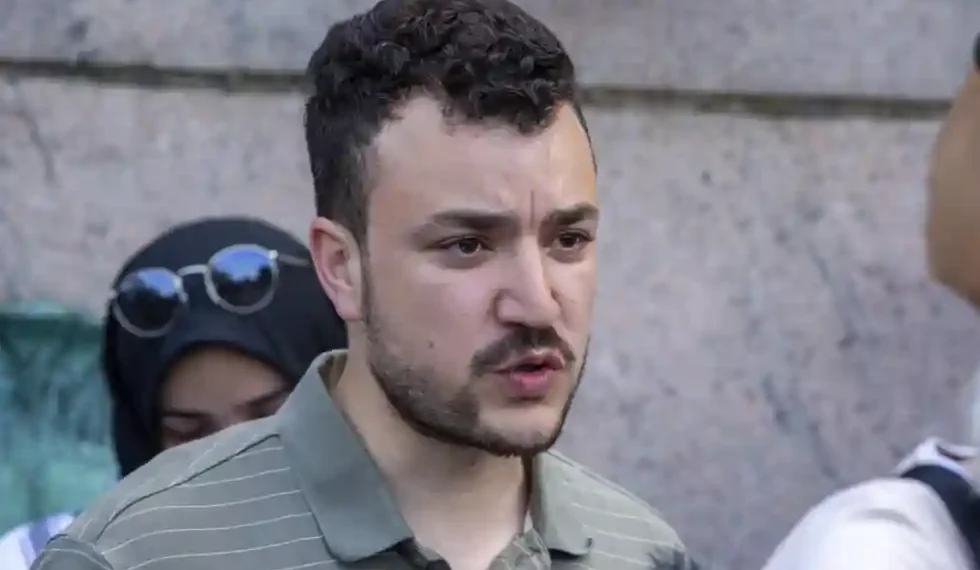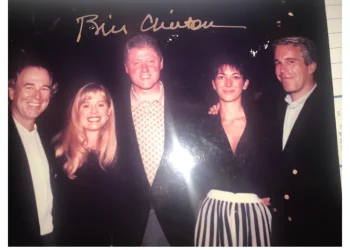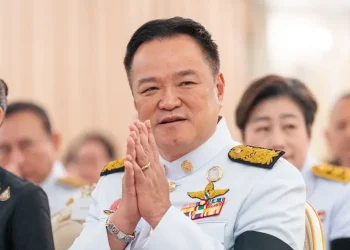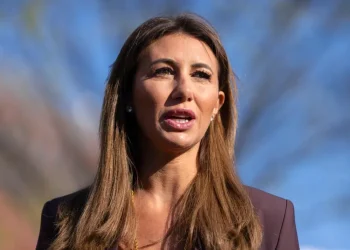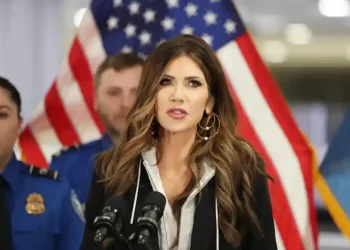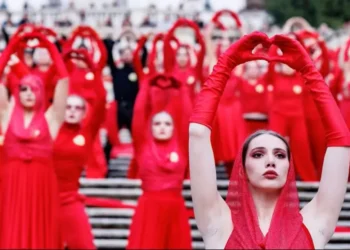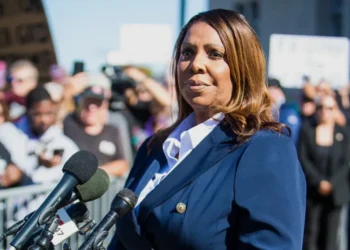Immigration Agents Arrest Palestinian Activist Who Led Columbia University Protests
Federal immigration authorities arrested Palestinian activist Mahmoud Khalil on Saturday, escalating the Trump administration’s push to detain and deport student activists, particularly those involved in protests against Israel. Khalil, a graduate student at Columbia University until December 2024, was taken into custody by Immigration and Customs Enforcement (ICE) agents while inside his university-owned apartment in Manhattan.
The Arrest
Khalil’s attorney, Amy Greer, confirmed that ICE agents entered the apartment Saturday night and detained Khalil. Greer spoke with one of the agents during the arrest, who stated that the action was taken under orders from the State Department to revoke Khalil’s student visa. After Greer clarified that Khalil was a permanent U.S. resident with a green card, the agent claimed they were revoking that instead.
A spokesperson for the Department of Homeland Security, Tricia McLaughlin, later confirmed the arrest, framing it as part of the Trump administration’s broader efforts to curb “anti-Semitism” and support the crackdown on pro-Palestinian activism. McLaughlin claimed Khalil was directly linked to Hamas, a group the U.S. government designates as a terrorist organization.
This marks the first known deportation attempt under the administration’s aggressive stance against student activists who voiced support for Palestinians in the wake of the Gaza conflict.
Escalation and Threats
As agents arrived at Khalil’s residence, they reportedly threatened to arrest his wife, who is eight months pregnant and an American citizen, according to Greer. Though initially informed that Khalil was being held at an immigration facility in Elizabeth, New Jersey, his wife was unable to locate him when she attempted to visit on Sunday. As of Sunday evening, Greer said she still had no updates on Khalil’s whereabouts.
“This is a clear escalation,” Greer said. “The administration is following through on its threats.”
University Response and Legal Concerns
Columbia University responded by stating that law enforcement agents must present a warrant before entering university property but did not disclose whether such a warrant was obtained for Khalil’s arrest. The school has declined to comment on the details of Khalil’s detention.
Khalil’s arrest comes as the Trump administration has followed through on threats to reduce funding to universities, including Columbia, for allegedly failing to combat antisemitism on campus. The administration claims that students participating in protests against Israel have supported terrorism and, therefore, have forfeited their right to remain in the U.S.
Khalil’s Activism and Legal Implications
Khalil, who earned a master’s degree from Columbia’s School of International and Public Affairs last semester, was a key figure in organizing the protests against Israel. He served as a negotiator in discussions with university officials regarding the removal of a protest encampment set up on campus last spring. His prominent role in the protests had made him a target of pro-Israel activists who have called for his deportation.
In addition, Khalil has been under investigation by a newly established Columbia University office that is scrutinizing pro-Palestinian activism. The university has initiated disciplinary charges against him for his involvement with the Columbia University Apartheid Divest group, for allegedly helping organize an unauthorized march that glorified Hamas’ attacks on October 7, 2023, and for circulating social media posts critical of Zionism.
Khalil rejected the allegations, stating, “I have around 13 allegations against me, most of them are social media posts that I had nothing to do with.” He also accused the administration of using these actions to placate right-wing politicians and diminish pro-Palestinian speech on campus.
The Broader Context
The Trump administration’s aggressive stance on pro-Palestinian activism has created a tense environment for students involved in related protests, with deportation and visa revocations becoming a focal point. As Khalil’s case unfolds, it remains to be seen whether this represents a broader trend that will affect other activists and students who engage in politically charged demonstrations.
Legal and Political Reactions
Immigration experts have expressed concern over the legal basis for detaining a legal permanent resident without criminal charges. Camille Mackler, founder of Immigrant ARC, noted, “This has the appearance of a retaliatory action against someone who expressed an opinion the Trump administration didn’t like.”
In a statement shared on X (formerly Twitter), Secretary of State Marco Rubio announced that the administration would continue efforts to revoke the visas or green cards of individuals accused of supporting Hamas, aiming for their deportation.
Khalil’s case highlights the growing intersection of immigration enforcement and political activism, raising serious questions about the limits of free expression and the scope of governmental power over student movements.
This article was rewritten by JournosNews.com based on verified reporting from trusted sources. The content has been independently reviewed, fact-checked, and edited for accuracy, neutrality, tone, and global readability in accordance with Google News and AdSense standards.
All opinions, quotes, or statements from contributors, experts, or sourced organizations do not necessarily reflect the views of JournosNews.com. JournosNews.com maintains full editorial independence from any external funders, sponsors, or organizations.
Stay informed with JournosNews.com — your trusted source for verified global reporting and in-depth analysis. Follow us on Google News, BlueSky, and X for real-time updates.
